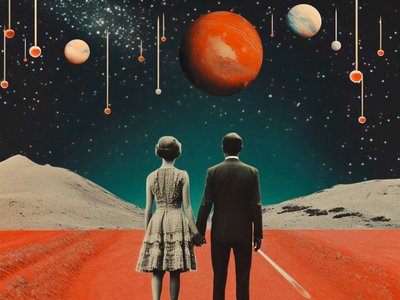

The focus was on current research projects on climate change, artificial intelligence (AI), biodiversity loss and social cohesion.
The discussion, moderated by Marlene Nowotny, opened with brief presentations of the projects by the experts:
- Dr Victoria Kumar (OeAD ERINNERN:AT) presented ‘Digital Memory Landscapes’, a research project on the contemporary communication of Nazi history using digital technologies.
- Dr Karin Reisinger (Academy of Fine Arts Vienna) explained the work in ‘Nach dem Abbau’, an artistic project on future prospects in post-industrial regions.
- Prof. Dr Lars Keller (University of Innsbruck) presented the project ‘Freeze for Future - Glacier Worlds’, which documents glacier landscapes using virtual reality for the climate education of the future.
- Dr Friedrich Wolf (University of Frankfurt) reported on ‘DigiGen’, an intergenerational project that takes a critical look at digital living environments and AI.
The panellists discussed the opportunities and challenges of participatory research. They emphasised the importance of involving citizens, especially young people, and how their personal experiences and perspectives contribute to the relevance and quality of the results. At the same time, they discussed how technologies such as virtual reality can promote knowledge transfer and cross-generational participation.
The lively discussion with questions from the audience highlighted the importance of cooperation between science and society in order to develop innovative, sustainable solutions to current crises.
The recording of the event is available to watch on YouTube: https://youtu.be/qmtpMCC1UEs?feature=shared
Further insights into citizen science projects are offered by the Spotlight series, the next event of which will take place on 16 January 2025. The Citizen Science Award, in which school classes, youth groups, families and individuals can participate in selected research projects, will start again on 1 April 2025.
